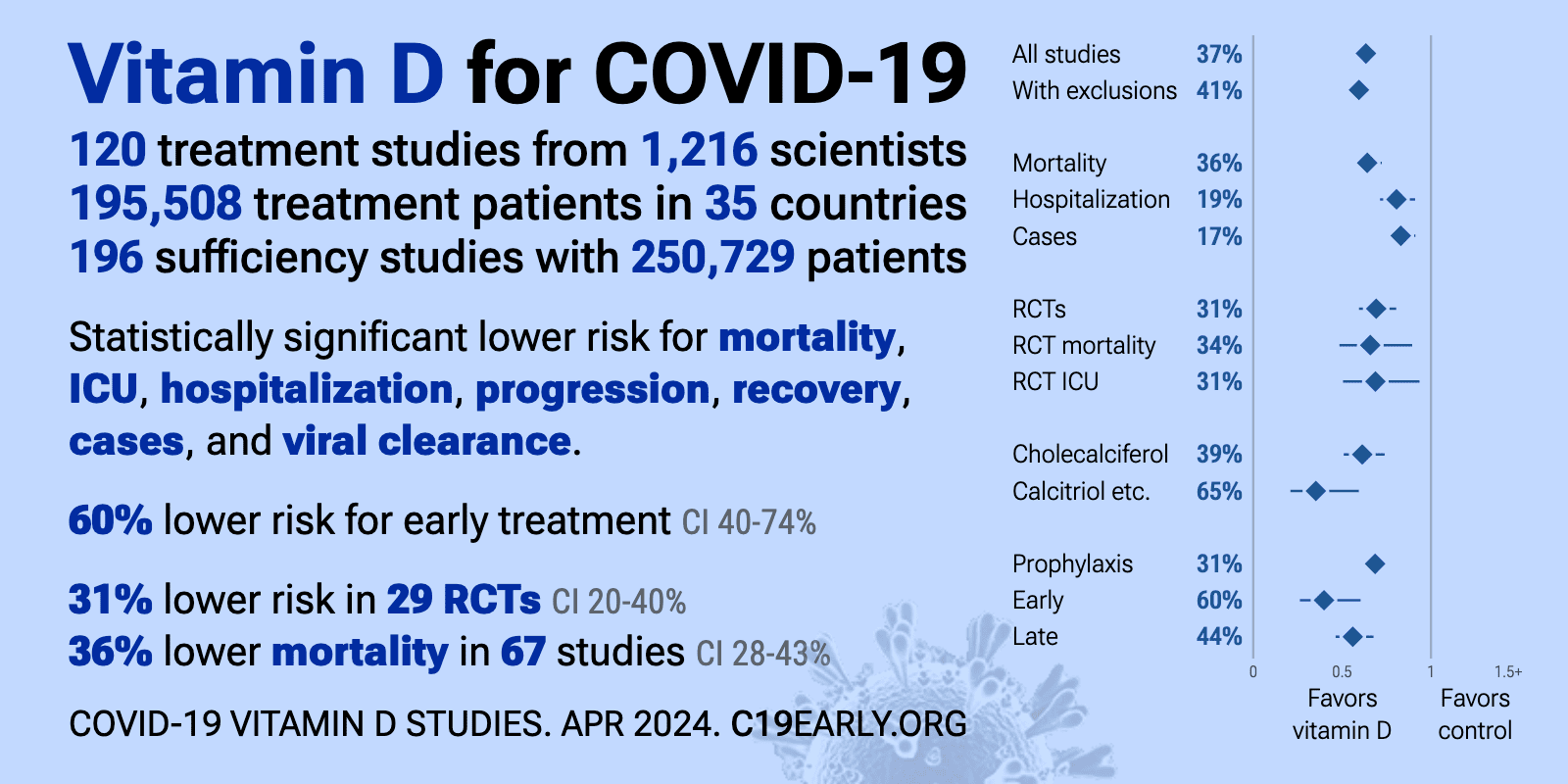Chance of moderately severe COVID 3X less likely if plant-based diet
Note: The survey did not ask about vitamin D supplementation.
People on a plant-based diet have less diabetes and may also supplement with Vitamin D
Plant-based diets, pescatarian diets and COVID-19 severity: a population-based case–control study in six countries
Hyunju Kim1,2, Casey M Rebholz1,2, Sheila Hegde3, Christine LaFiura4, Madhunika Raghavan4, John F Lloyd5, Susan Cheng5 and Sara B Seidelmann6,7

Background Several studies have hypothesised that dietary habits may play an important role in COVID-19 infection, severity of symptoms, and duration of illness. However, no previous studies have investigated the association between dietary patterns and COVID-19.
Methods Healthcare workers (HCWs) from six countries (France, Germany, Italy, Spain, UK, USA) with substantial exposure to COVID-19 patients completed a web-based survey from 17 July to 25 September 2020 . Participants provided information on demographic characteristics, dietary information, and COVID-19 outcomes. We used multivariable logistic regression models to evaluate the association between self-reported diets and COVID-19 infection, severity, and duration.
Results There were 568 COVID-19 cases and 2316 controls.
Among the 568 cases,
138 individuals had moderate-to-severe COVID-19 severity whereas
430 individuals had very mild to mild COVID-19 severity.
After adjusting for important confounders, participants who reported following ‘plant-based diets’ and ‘plant-based diets or pescatarian diets’ had 73% ( OR 0.27 , 95% CI 0.10 to 0.81) and 59% (OR 0.41, 95% CI 0.17 to 0.99) lower odds of moderate-to-severe COVID-19 severity, respectively, compared with participants who did not follow these diets.
Compared with participants who reported following ‘plant-based diets’, those who reported following ‘low carbohydrate, high protein diets’ had greater odds of moderate-to-severe COVID-19 ( OR 3.86 , 95% CI 1.13 to 13.24). No association was observed between self-reported diets and COVID-19 infection or duration.
Conclusion In six countries, plant-based diets or pescatarian diets were associated with lower odds of moderate-to-severe COVID-19. These dietary patterns may be considered for protection against severe COVID-19.
📄 Download the PDF from Vitamin D Life
Vitamin D Life – COVID-19 treated by Vitamin D - studies, reports, videos
{include}

- The above image is automatically updated
Vitamin D Life - studies in both categories Virus and Diabetes
This list is automatically updated
{category}
Studies of Diabetes and Diet
A plant-based diet for the prevention and treatment of type 2 diabetes - May 2017 doi: 10.11909/j.issn.1671-5411.2017.05.009
Changes in Plant-Based Diet Indices and Subsequent Risk of Type 2 Diabetes in Women and Men: Three U.S. Prospective Cohorts - Jan 2021 https://doi.org/10.2337/dc20-1636
The effects of popular diets on type 2 diabetes management - May 2019 https://doi.org/10.1002/dmrr.3188
Effects of high-protein diet on glycemic control, insulin resistance and blood pressure in type 2 diabetes: A systematic review and meta-analysis of randomized controlled trials - June 2020 https://doi.org/10.1016/j.clnu.2019.08.008
- "This review showed that a high-protein diet does not significantly improve glycemic control... "
Dietary patterns and management of type 2 diabetes: A systematic review of randomised clinical trials - June 2019 https://doi.org/10.1016/j.numecd.2019.02.004
- Low carb diet not reduce diabetes
Diabetes and the Nutrition and Diets for Its Prevention and Treatment: A Systematic Review and Dietetic Perspective - Feb 2020
